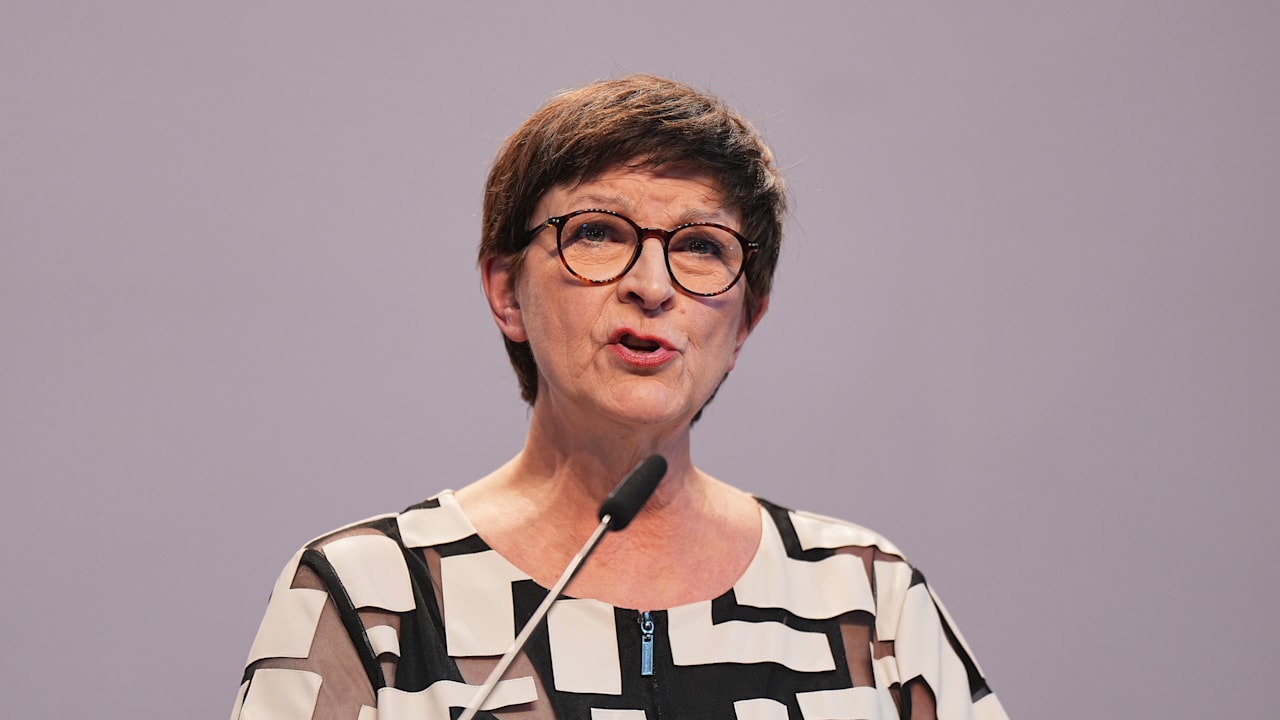Top SPD Member Directly Criticizes Esken: Party Rift Widens
Editor’s Note: A significant rift within the German Social Democratic Party (SPD) has emerged today following a direct criticism of party leader Saskia Esken by a prominent member.
Why This Matters: Internal SPD Conflict and its Implications for German Politics
This public disagreement within the SPD's highest ranks carries significant weight for German politics. The criticism highlights internal tensions over policy direction, potentially impacting the party's stability and its ability to effectively govern in coalition. This article will delve into the specifics of the criticism, explore the underlying causes of the conflict, and analyze the potential consequences for both the SPD and the broader German political landscape. Understanding this internal struggle is crucial for anyone following German domestic affairs and its impact on European politics.
Key Takeaways
| Point | Description |
|---|---|
| Direct Criticism | A high-ranking SPD member publicly denounced Saskia Esken's leadership. |
| Policy Disagreements | The criticism points to deep divisions within the party over key policy issues. |
| Potential Instability | The conflict threatens the SPD's internal cohesion and its governing capability. |
| Impact on Coalition | The rift could strain the SPD's coalition partnerships and national policymaking. |
| Public Perception | This public dispute negatively impacts the SPD's image and public trust. |
Top SPD Member Directly Criticizes Esken
The recent public criticism of SPD leader Saskia Esken by [Name of SPD Member and Position – replace with actual name and position] has sent shockwaves through the German political establishment. [He/She/They] directly challenged Esken's [Specific policy or leadership decision – replace with details] during [Event where criticism occurred – replace with details], stating [Direct quote from the critic – replace with actual quote]. This unprecedented direct attack exposes significant fault lines within the party.
Key Aspects of the Criticism
- Policy disagreements: The core of the criticism appears to revolve around disagreements over [Specific policy area 1 – e.g., economic policy] and [Specific policy area 2 – e.g., migration policy]. [Explain the specific points of disagreement].
- Leadership style: The critic's statements also hint at concerns about Esken's leadership style, suggesting a lack of [Specific leadership quality – e.g., decisiveness, inclusiveness] and an inability to [Specific leadership failing – e.g., unite the party, effectively communicate policy].
- Internal power struggles: This public clash may be symptomatic of deeper internal power struggles within the SPD, with various factions vying for influence.
Detailed Analysis of the Criticism and its Context
This public disagreement is not an isolated incident. It reflects a growing unease within the SPD regarding [mention broader context, e.g., recent electoral setbacks, internal party divisions, etc.]. The criticism highlights the challenge Esken faces in uniting a diverse party with sometimes conflicting agendas. The timing of the criticism, [mention the context of the timing – e.g., close to upcoming elections, significant policy debates], further amplifies its impact.
The Impact of the Criticism on the SPD's Future
Public Perception and Damage Control
This public airing of grievances significantly damages the SPD's image. The party now faces the challenge of managing the fallout and restoring a sense of unity. This requires a swift and decisive response from Esken, addressing the criticism directly and outlining a clear path forward. The party must demonstrate that it can effectively navigate internal disagreements and maintain its ability to govern.
Potential Implications for the Coalition
The internal strife within the SPD could destabilize the current governing coalition [mention coalition partners]. The ongoing disagreements might make it challenging for the coalition to agree on key policies, potentially hindering legislative progress and undermining public confidence.
People Also Ask (NLP-Friendly Answers)
Q1: What is the significance of this criticism within the SPD?
A: This direct criticism highlights deep divisions within the SPD, questioning Esken's leadership and potentially impacting the party's stability and governing capabilities.
Q2: Why is this important for German politics?
A: This internal conflict within a major governing party could significantly affect the stability of the German government and influence national policy decisions.
Q3: What are the potential consequences of this public disagreement?
A: Potential consequences include further internal conflict, damage to the SPD's public image, and strains on the governing coalition.
Q4: What is the likely response from the SPD leadership?
A: A decisive response is needed to address the criticism, restore unity, and prevent further damage to the party's image.
Q5: How might this affect future elections?
A: The internal conflict could negatively affect voter support and impact the SPD's performance in future elections.
Practical Tips for Understanding German Politics
- Follow reputable news sources: Stay informed through trusted German and international news outlets.
- Engage with political analysis: Read expert commentary to understand different perspectives on the issues.
- Follow social media: Monitor discussions on platforms like Twitter to gauge public opinion.
- Learn about German political parties: Understand the ideologies and key players within the various parties.
- Track policy developments: Pay attention to major policy debates and legislative actions.
Summary
The direct criticism of Saskia Esken represents a serious challenge to the SPD. The resulting internal conflict has significant implications for the party's future, the stability of the German government, and the broader political landscape. The outcome of this internal struggle will be closely watched by political observers throughout Germany and Europe.
Closing Message
The events surrounding this criticism underscore the complexities of coalition politics and the challenges faced by leadership within major parties. The ongoing development of this situation warrants close attention.
Call to Action
Stay updated on this developing story by subscribing to our newsletter for regular updates on German politics! Share this article with your network to encourage discussion about this crucial development.

